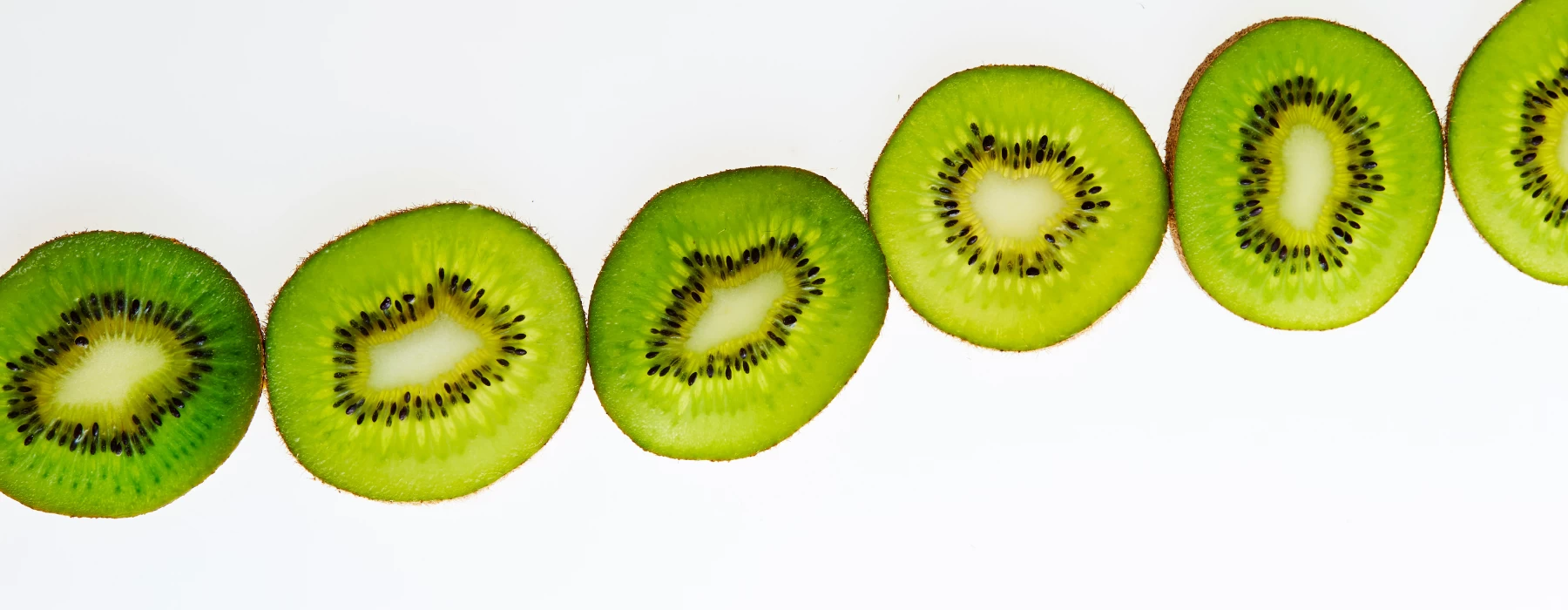
Kiwi is a small fruit packed with a lot of flavors and nutrients. It has green coloured sweet and tangy flesh. Kiwi is a good source of vitamin C, vitamin K, vitamin E, folate and potassium. It is high in antioxidants and fiber. It is found all round the year. Nutritional facts of kiwi per 100 grams:
|
Calories |
61 |
|
Fat |
0.5 grams |
|
Sodium |
3 mg |
|
Potassium |
312 mg |
|
Carbs |
12 grams |
|
Fiber |
3 grams |
|
Sugar |
9 grams |
|
Protein |
1.1 grams |
|
Vitamin C |
154% of RDI |
|
Calcium |
3% of RDI |
|
Iron |
1% of RDI |
|
Vitamin B6 |
5% of RDI |
|
Magnesium |
4% of RDI |
According to some studies, it was found that consumption of fresh fruits including kiwi resulted in better function of lungs. Fresh fruits like kiwi, may also reduce wheezing in susceptible children. It is thought that high amounts of vitamin C and antioxidants present in kiwi can help in the treatment of asthma.
In addition to high amounts of fiber, kiwi also contains a proteolytic enzyme, called actinidin which can help in the digestion of protein. Kiwi extract, containing actinidin, greatly enhanced the digestion of most of the proteins. A full cup of kiwi can provide approx 273% of RDI of vitamin C. When it comes to boosting the immune system, vitamin C is the crucial nutrient. According to a study, kiwi can support immune function and reduce the risk of developing cold-or flu-like illnesses.
Oxidative stress has several negative health impacts, including damage to our DNA. There is evidence to show that antioxidants may reduce the load of oxidative stress. Regular consumption of kiwi or it’s extract reduces the likelihood of oxidative stress.
In addition to boosting the immune system, kiwi can also help to manage blood pressure. In the long term, consumption of kiwi on a regular basis can lower the risk of high blood pressure and associated strokes and heart attacks.
According to a study, consumption of 2-3 kiwi per day can significantly lower the risk of blood clotting. In addition it also reduces the amount of fat in the blood. According to the researchers, these effects were similar to those of a daily dose of aspirin to improve heart health. The leading cause for loss of vision is macular degeneration. Kiwis might help in the protection of eyes from it. According to a study, three servings of kiwi can reduce the risk of macular degeneration upto 36%. High levels of antioxidants, zeaxanthin and lutein are thought to be behind this.
Although kiwi is considered safe for most people, it can cause problems to allergic people. Allergy signs associated with kiwi are itchy throat, swollen tongue, vomiting, hives, difficulty in swallowing. People having an allergy to hazelnuts, avocados, latex, wheat, figs, or poppy seeds are at higher risk for having an allergy with kiwi. Rare allergy symptoms are bleeding disorders.